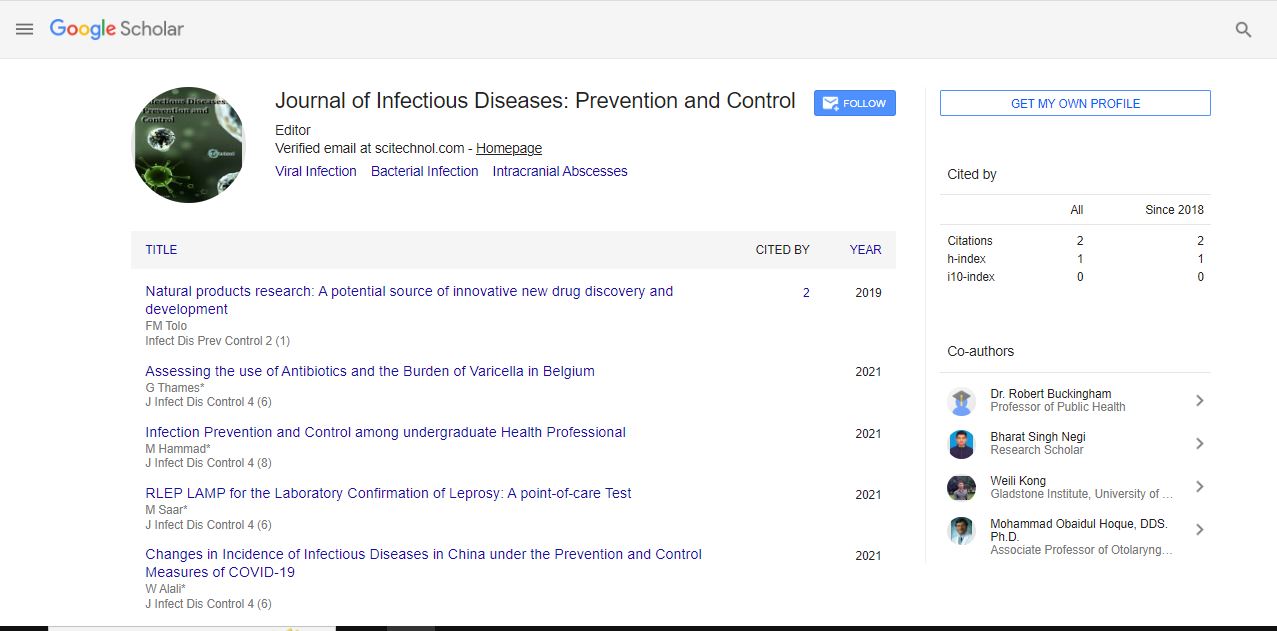Perspective, Vol: 6 Issue: 1
Unveiling the Influence of Routine Expert Breast Pathology Consultations and Predicting Factors for Discordant Diagnose
P. Hande Ozdinler*
Department of Neurology, Feinberg School of Medicine, Northwestern University, 303 E Chicago Ave, Chicago, USA
*Corresponding Author: P. Hande Ozdinler
Department of Neurology, Feinberg
School of Medicine, Northwestern University, 303 E Chicago Ave, Chicago, USA
E-mail: ozdinler@north.edu
Received date: 21 February, 2023, Manuscript No. IDPC-23-93453;
Editor assigned date: 23 February, 2023, Pre QC No. IDPC-23-93453(PQ);
Reviewed date: 07 March, 2023, QC No. IDPC-23-93453;
Revised date: 14 March, 2023, Manuscript No. IDPC-23-93453(R);
Published date: 24 March, 2023, DOI: 10.36648/idpc.5.2.122
Citation: Ozdinler PH (2023) Unveiling the Influence of Routine Expert Breast P athology Consultations and Predicting Factors for Discordant Diagnoses. Infect Dis Prev Control 6:1.
Description
Breast pathology is a subspecialty of pathology that deals with the diagnosis of breast diseases. Pathologists who specialize in breast pathology are highly trained in the interpretation of breast tissue samples, including biopsies and surgical specimens. Expert breast pathology consultations are often sought when a patient has a breast abnormality or when a physician needs help interpreting a breast biopsy or surgical specimen. A breast pathology consultation involves a review of the patient's medical history and examination of the tissue sample under a microscope to determine the diagnosis. An expert breast pathology consultation can help provide a more accurate diagnosis, which can lead to more effective treatment options for the patient. It can also help guide the management of the patient's care by providing recommendations for further testing or treatment. The need of a breast pathology consultation, it is important to find a pathologist who is highly experienced in this field. The influence of routine expert breast pathology consultations can be multifaceted. On one hand, expert consultations can serve as a valuable tool for confirming challenging cases, providing a second opinion, and resolving diagnostic discrepancies among pathologists. Expert pathologists with specialized expertise in breast pathology may bring additional insights and experience to the interpretation of complex breast lesions, which can lead to more accurate and reliable diagnoses. On the other hand, routine expert breast pathology consultations may also introduce potential sources of discordance, such as differences in interpretation, diagnostic criteria, or even personal biases among pathologists. Factors such as inter-observer variability, differences in diagnostic thresholds, and variations in reporting terminologies may all contribute to discordant diagnoses, even among expert pathologists.
A discordant diagnosis refers to a situation where two or more pathologists examine the same tissue sample and arrive at different diagnoses. This can happen for a variety of reasons, such as differences in interpretation or subjective judgment.
Some characteristics that may indicate a discordant diagnosis
Differences in interpretation of the tissue sample: Pathologists may have different opinions on what they see when they examine a tissue sample under a microscope. For example, they may disagree on the presence or absence of certain cellular features, or they may interpret those features differently.
Variations in sampling: Different pathologists may sample different areas of the tissue specimen, which can lead to variations in diagnosis. This can happen because some areas of the tissue may be more abnormal or more representative of the disease than others.
Subjective judgment: Pathologists' interpretations can be influenced by their personal experiences and biases, as well as by the way they were trained.
Differences in terminology: Pathologists may use different terms to describe the same finding, which can lead to confusion or miscommunication.
Technical issues: Technical issues, such as poor quality of the tissue sample or staining artifacts, can also contribute to discordant diagnoses.
When a discordant diagnosis occurs, it is important to seek the opinion of an experienced pathologist or to have the tissue sample reviewed by a panel of pathologists to arrive at a definitive diagnosis.
 Spanish
Spanish  Chinese
Chinese  Russian
Russian  German
German  French
French  Japanese
Japanese  Portuguese
Portuguese  Hindi
Hindi 